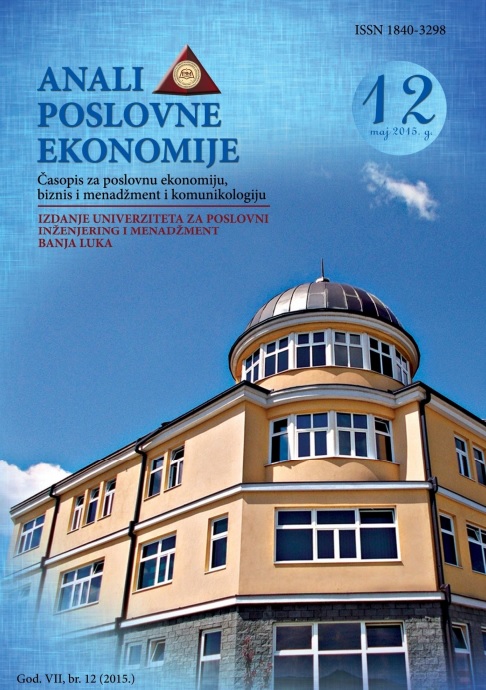EFFECTS OF FOREIGN CURRENCY EXCHANE RATES ON COMPETITIVENESS OF THE REPUBLIC OF SERBIA IN INTERNATIONAL BUSINESS
DOI:
https://doi.org/10.7251/APE1215004GAbstract
In the era of globalization and international flows that carry the liberalization,
deregulation and increased impact of international monetary institutions, as well as
the general macroeconomic environment and economic policies of the national
economy have been crucial to the economic competitiveness in the international
market. Exchange rate policy, as one of the factors of economic policy, has significant
implications for competitiveness, balance of payments and indebtedness. In this
regard, the purpose of this paper is to point out the exchange rate regime of the
Republic of Serbia, which has, by appreciation of currency reduced the
competitiveness of domestic product, balance of payments deficit and a high level of
indebtedness. The work methodology is based on the processing of secondary data
published in public sources for the period 2001-2012 of the Republic of Serbia in
order to obtain a representation of the analyzed data. The research results indicate that
the real exchange rate of the dinar is almost double the official rate, and there is no
particular interest in exporting local products. Therefore, the monetary and foreign
exchange as well as the overall economic policy appears as a catalyst for the
development of Serbia's competitiveness in the international market, and it can be
concluded that the monetary-and-foreign exchange policy has not achieved economic
objectives although the stability of the exchange rate as a positive measure is
constantly emphasized by economic policy makers. The alleged stability cost Serbia a
lot, as evidenced by data from the balance of payments: a high deficit, high external
debt and consequential debt slavery of Serbia.

